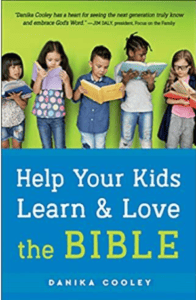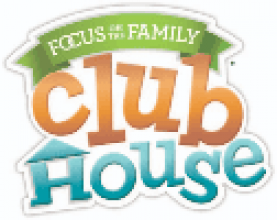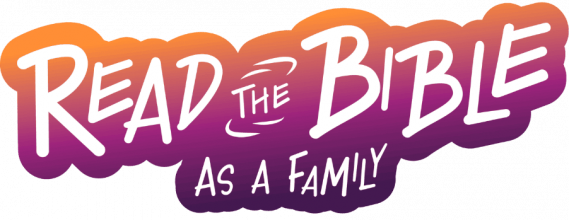Woman #1: I would hear Bible stories as a kid, but often they just seemed like fairy tales.
Woman #2: I grew up going to church, but I don’t remember hearing the word sin. I thought most people were good.
Man: I had a friend share his faith with me a few years ago. I realized I had gone to church for 20 years, but I didn’t know what the gospel was.
John Fuller: Unfortunately, those are some pretty common experiences. Uh, many people grow up in the church, but they never hear the good news, the gospel of Christ. Today on Focus on the Family, we have some great advice on reading God’s Word with your kids and how to give them a firm foundation for life. Your host is Focus president and author Jim Daly. And I’m John Fuller.
Jim Daly: John, we’ve highlighted some fascinating research, uh, from a good friend of ours, Dr. Kara Powell. She’s out at Fuller Theological Seminary and, and they found, um, that a startling number of kids drift from the faith. But a number of them do come back over time, but sadly, some don’t. Uh, some kids grow up in Sunday school and church and youth group, and they still leave their homes believing Christianity is a list of dos and don’ts, simply behaviors. And they don’t have a good grasp of the gospel or the core message of the Bible-
John: Mm-hmm.
Jim: … salvation through Christ and Christ alone. Right? And He’s come to pay a way for us to spend eternity with Him. Um, if you’re an adult and you don’t understand that, get ahold of us, ’cause that’s the core mission here at Focus on the Family. The good news is if you’re a parent, uh, you’re in the best position to lead your child, uh, to God’s Word and teach them the good news. And don’t be fooled. The research is clear on this too. Uh, 70, 80% of teenagers say their most important relationship is their mom and dad. So don’t let culture kind of throw dirt over that relationship.
John: Mm-hmm.
Jim: Uh, believe in the relationship you have with your kids. And I’ll be the first to admit, sometimes, you know, getting on a steady reading habit with your kids can be difficult. Um, but plow ahead. I remember with Trent and Troy, uh, we were really consistent reading the Word with them. I mean, up until 17, 18. And then obviously we kind of expected them to do it on their own. Uh, today we will have advice to help you open the Bible with your family. Uh, maybe a little bit every day, uh, is such a worthwhile investment and I know God will bless that effort.
John: Absolutely. And our guest, I think, shares that conviction. Uh, Danika Cooley is a mom, a children’s book author and bible curriculum developer. And, uh, she has, uh, a book that we’re gonna be talking about today, Help Your Kids Learn and Love the Bible, and we’ll encourage you to check that out, uh, at focusonthefamily.com/broadcast. Or call 800 the letter A and the word FAMILY.
Jim: Danika, welcome to Focus on the Family.
Danika Cooley: Thank you. I’m so honored to be here.
Jim: This is your first time, right?
Danika: It is. Yeah.
Jim: Oh, that’s fun. We love that. And man, you have been, uh, working hard, uh, not only as a mom, but also with curriculum development and all kinds of things. I guess the first question is, where do you find time (laughs) to do it all?
Danika: Well, I’ve been, um, writing about the Bible for Kids for, um, since 2009. And a lot of it I did late at night when we first started-
Jim: Really.
Danika: Yeah. When they were little.
Jim: That’s the only time you had, right?
Danika: It really was.
Jim: Yeah.
Danika: ‘Cause I wanted to be present for them and I wanted to, you know, participate in their day. And we homeschooled. So they were there all the time.
Jim: Yeah.
Danika: Um, so yeah, I did it late at night and then as they became more independent and, um, got involved in sports and, um, would go to practices, then I would work during that time.
Jim: Wow. That’s amazing.
Danika: Yeah.
Jim: And speaking of that, uh, you have four children.
Danika: Mm-hmm.
Jim: Two are older, and then you have the two teens.
Danika: Yeah.
Jim: Two teen boys.
Danika: Yeah.
Jim: So I can relate.
Danika: (laughs).
Jim: How old are they now?
Danika: They’re, um, 17 and 18.
Jim: I love it. In fact, uh, you reference an argument that you had to, uh, break them up and, uh, I guess I’m gonna go right to the heart (laughs) of your house. What was going on and why’d you have to break up this argument with your boys?
Danika: Well, I sent them to brush their teeth together, which is a-
Jim: (laughs).
Danika: … total newbie mom mistake.
Jim: That’s no-no.
Danika: Right.
Jim: (laughs).
Danika: I should have known better, but I wanted them to go to bed, so I was in a hurry. And, um, I sent them and, um, they were just arguing and I thought maybe someone had squeezed the toothpaste tube wrong. And they came barreling out with their little, um, toothbrushes and said, “You know, mom, we need you to solve something for us.” And I thought, okay, well then maybe this is a productive argument. Um, and they said, “We are arguing about, um, the burning Bush that-”
Jim: (laughs).
Danika: “… where God talks to Moses, we need to know, was it, um, God the Father, or God the Son in the Bush.” And I (laughs)-
Jim: You know, uh… (laughs).
John: Goodness.
Danika: … I remember they were seven and eight. Yeah. And I remember thinking, “I don’t know what’s happening here.”
Jim: Mm-hmm.
Danika: I thought that a lot as a parent, “I just don’t know what’s happening here.” But we used to take them to church with us for the first service and then go teach Sunday school, and they’d come down with us. And, um, they were under the pews and like coloring. And I just thought we were setting a tone for attending church later in their life. But, um, it turns out they were listening to our pastor’s, um, sermon that day about Christophanies and Theophanies and the difference between God the Father and God the Son appearing in the Old Testament. And then they took it and applied it to a story they knew really well, and then they wanted to know how that turned out.
Jim: And so that, that really spoke to your heart, obviously, about-
Danika: Mm-hmm.
Jim: … how much a child, a young child can absorb-
Danika: Yeah.
Jim: … when it comes to… I think we often as parents underestimate that, right?
Danika: I think we do. I, our kids absorb and take in so much. And, um, what we came to believe is it might as well be God’s Word everywhere that we can introduce it. We might as well incorporate God’s Word into our lives because it becomes the fabric and foundation of their lives.
Jim: Sure. You know, one of the practical questions for so many, especially if you have, uh, both parents working outside the house.
Danika: Mm-hmm.
Jim: Um, you know, how do you move that up in the, to-do list of everything else?
John: Mm-hmm.
Jim: … like feeding and clothing your kids (laughs)-
Danika: Yeah.
Jim: … cleaning up the messes and doing everything else you have to do. And then, “Okay, we gotta work scripture in.” And I, I’m, you know, I’m asking it a little sarcastically because I think we all would believe doing that is probably the most important thing you need to do.
Danika: Mm-hmm.
Jim: But how do you move that up in your prioritization, I guess is the question.
Danika: Right. So, um, we do have to keep our kids alive. It’s very important.
Jim: (laughs).
Danika: I think that’s a primary goal.
Jim: Some parents are going, “What? Really?”
John: If you have boys, it’s all preventative (laughs).
Danika: Right. (laughs).
Jim: This is how the parents of boys speak. By the way, if you only have girls, this is how it goes.
Danika: Yeah. Yeah. It’s different with boys.
Jim: (laughs).
Danika: Um, so we wanna keep them alive. But I do think that after that, our primary goal is to introduce them to scripture. And I think it can be done in 10 or 15 minutes a day. And for us, our strategy has been to make that a part of our rhythm. So every day my kids insist on eating. They are just sticklers about it.
Jim: (laughs).
Danika: (laughs) they, they want-
Jim: I like your boys.
Danika: Yeah. They-
Jim: (laughs).
Danika: … they’re awesome (laughs). Right now, one of them is over six feet and he eats constantly.
John: Mm-hmm.
Jim: Yeah.
Danika: Um, so, you know, um, we have at least three meals a day. And so what we did was attach scripture and prayer to our meals.
Jim: To their hamburgers?
Danika: Yeah. Yeah (laughs).
Jim: You like stick the scripture right there?
Danika: (laughs). Right. (laughs). So-
Jim: (laughs).
Danika: … um, now after breakfast, we’ll go and pray and read a chapter or three chapters for us of the Bible and then discuss ’em. Um, because they’re teens, they can handle three chapters.
Jim: Yeah. And you mentioned that in the book too.
Danika: Mm-hmm.
Jim: I think that’s a good, a good practical piece of advice. So for younger children, it was a chapter together.
Danika: Mm-hmm.
Jim: And then a little older. Give the age breakdown, how you follow that.
Danika: Right. So, um, elementary or preschool, you know, you can do even less, uh, if you have a-
Jim: A verse.
Danika: Right. Um, and then for elementary, you can do a chapter a day. Um, for middle grade we did two chapters, and then for teens, usually three chapters. And it depends on their schedule. So sometimes it’s only a chapter and-
Jim: Right.
Danika: … you know.
Jim: When they’re busy.
Danika: Yeah.
Jim: But the idea is regular study diet of scripture.
Danika: Right, right.
Jim: Which is awesome.
Danika: Yeah.
Jim: Let me ask you some parents, and again, I, we get, there’s a variety of parenting styles and we know that, and we know that we emphasize different things in different moments.
Danika: Mm-hmm.
Jim: But fundamentally, when you look at it, this is the difference. I mean, having your child understand what scripture’s about et cetera, is so-
Danika: Mm-hmm.
Jim: … important to their true salvation, you know?
Danika: Mm-hmm.
Jim: So it’s not just a, a social response or a family response, but, so they can make it their own. In that context, uh, some parents might think that, you know, “The Bible’s a big book. I mean, really you can actually do that?” And maybe that shows a little bit of an indication of their own inability to sit and read-
Danika: Mm-hmm.
Jim: … because they’re overwhelmed by the chapters, what, whatever might be overwhelming them. Speak to that idea that, uh, no, your, your kids can really digest the scripture and they’ll get it.
Danika: Yeah. It is a big book and it can-
Jim: (laughs).
Danika: … seem overwhelming. Um, and sometimes we don’t even know where to open it, right, if we haven’t gotten started. So I always suggest that parents start either in Genesis or in Matthew, and there’s pros and cons to each, but that way your, your child’s getting the story of scripture and then you just cycle through. So Charlotte’s Web is a beginning chapter book for kids. It’s around 30,000 words. It’s just a little over. If you read Charlotte’s Web 24 times, you would have covered the word count of scripture.
Jim: Hmm. Amazing. Yeah.
Danika: Yeah. And if you’re gonna spread scripture out with your kids over three years, um, you know, to say that you could read Charlotte’s Web eight times in a year is completely doable. And we read books aloud with our kids. Um, so if we break it down in our heads too, “You know, I’m just gonna read a chapter a day with my kids, and wherever we end up on the timeline is fine, as long as we’re faithful. And when we can, we read this chapter a day attached to a major event in our day, like dinner or breakfast,” it becomes completely doable.
Jim: Sure.
Danika: So instead of trying to eat the whole thing at once, we can just do it a little at a time.
Jim: Yeah. And that’s a good way to approach scripture. Um, I remember with my boys when they were a little younger, I wanted to get them going on the book of Proverbs.
John: Mm-hmm.
Jim: You know, I think especially both boys and girls need that, obviously. But Proverbs really is a, a great introduction to so many good things for boys, particularly about how to behave and what’s important and who God is, et cetera. The tenets, the principles. You get into Proverbs three, five and six. You know, don’t lean on your own understanding, but in all your ways, acknowledge Him and He will make your paths straight.
Danika: Mm-hmm.
Jim: They could, I mean, they’ll go right there, ’cause I hit that one a lot. But then you get into some of the other Proverbs.
Danika: Mm-hmm.
Jim: And you’re going, (laughs), you know, the kids are like seven and nine. And I’m going, uh, uh, we’re gonna skip this part right here ’cause it was edgy.
Danika: Yeah.
Jim: You know, it’s talking about human sexuality and things that I didn’t feel like they were ready to go toward-
Danika: Mm-hmm.
Jim: … or be exposed to. Speak to that dilemma in scripture. ‘Cause the, the Bible has a lot of, you know, hard stuff in it-
John: Real life. Yeah.
Jim: … about battles and about-
Danika: Mm-hmm.
Jim: … human sexuality. I mean, it hits all those issues. How do you manage that with younger children?
Danika: Right. So the Bible can be really edgy and in the historic, um, books, a lot of the narrative is very descriptive. So God just lays out there what happened, and then we see the consequences of it. It’s not necessarily prescriptive. We’re not supposed to live the sin that is there. So for a 5-year-old, um, they really don’t need to hear Judges 19, which is the story of the Levi and his concubine and the tribe of Benjamin. It is an incredibly violent, um, awful story. Like as an adult, I have a hard time reading it. So I would suggest reading the entire Bible with your teens. Um, but for five-year-old, just skip that chapter.
Jim: Right.
Danika: We can just take out the stuff that, um, they don’t need to know about.
John: Mm-hmm.
Jim: Yeah. No, that’s good. Let me ask, um, with, uh, a wide range-
Danika: Mm-hmm.
Jim: … of children. So you’re talking about at the dinner table, you know, uh, being able to read a bit of scripture together.
Danika: Mm-hmm.
Jim: When you have, in your case where you had the two older children, um, probably in their teens and the younger kids in their-
Danika: Mm-hmm.
Jim: … single digits, is there any, uh, you know, difficulty in how to do that for a wide range of age at the same time? Or do you break it down so that you’re with the older kids and talking, you know, and reading different things than compared to the younger kids?
Danika: Yeah. So I suggest that if you have teens in the home, um, if there are those edgy chapters that the teens can be asked to read them on their own, and then you can discuss ’em, like-
Jim: Oh, that’s good. It gives a little intrigue.
Danika: Yeah.
Jim: (laughs).
Danika: Yeah.
Jim: “Okay, mom, I’ll do that.”
Danika: It’s a special thing that they’re entrusted with. And you can have a conversation maybe after the other kids go to bed. Um, and with real little kids, like we had my sister’s children with us, um, during the day for a couple years, um, on the weekdays, and I didn’t want to neglect teaching my kids. So I set up boxes of activities, you know, for Monday, Tuesday, Wednesday, and they were quiet activities, and they only saw those boxes during the 20 minutes that I would read a chapter with my kids and talk to ’em about it. And, um, this is another I, I tell you as a parent, I’m always surprised by everything. But, um, I would ask my kids questions and I’d hear these sweet little girl voices just pop up with an answer to the question. And they had been listening. So, um, you know, our kids understand more than we think, but if we allow our littles to do things like put stickers on a page, there is nothing wrong with that.
Jim: Yeah.
John: Our guest today on Focus on the Family is Danika Cooley. And, uh, we’re talking about her book, Help Your Kids Learn and Love the Bible, and it’s a great framework for you to grab onto some things and help your children better understand the, the truths of scripture. We have copies of that here at focusonthefamily.com/broadcast, or call 800 the letter A and the word FAMILY.
Jim: Danika, one thing that’s so true with the scripture is the multi-layers that the scripture communicates to us.
John: Mm-hmm.
Danika: Mm-hmm.
Jim: Right. Yeah. You could be a 10-year-old and you get a certain truth by reading it.
Danika: Mm-hmm.
Jim: And of course, you can be a, a 60, 70-year-old, and you’re gonna see something unique and different in what the Lord is exposing you to in your heart.
Danika: Mm-hmm.
Jim: And in that context, uh, the one thing I want everybody to be aware of, the Bible is clear about some major points. And so when you look at it from that perspective, um, tell everybody, uh, what the overarching message is of scripture and why it’s important.
Danika: So, um, the Bible is a story, and God fitted us to understand story. And then He wrote us a great story of His plan for salvation, which I just think is amazing. So everything in scripture points to that great plan for salvation in Jesus Christ, um, by grace through faith that He has for us. And, um, that He has other overarching themes in scripture that are really important for our kids to know, like who God is, um, who man is who, who humans are, our sin nature, and our need for a savior. And then His plan for salvation. And then Jesus’ commands for His followers.
Jim: You know, for us as parents, one thing I’ve really tried to, uh, talk to my boys about is identity.
Danika: Mm-hmm.
Jim: And you look at the culture today, uh, you know, everybody’s doing education differently. You homeschool-
Danika: Mm-hmm.
Jim: … we did charter school. Uh, others do public, more public school or Christian school.
Danika: Mm-hmm.
Jim: And I’ve come to the conclusion, it doesn’t matter, you’ve got to be engaged with your children.
John: Mm-hmm.
Jim: Because in any of those formats, it’s not predictable that it’s a perfect environment, the right environment. And so you as a parent need to, uh, make sure you’re taking charge, especially of your child’s spiritual education, you know, what they know about God, et cetera.
Danika: Mm-hmm.
Jim: And, uh, that’s why I think it’s so critical to make sure that you’re engaging them in this way and reading with them-
Danika: Mm-hmm.
Jim: … and not relying on Sunday school to do it on one day a week, et cetera. But how over the arc of time, zero to 18, do you keep that fresh between you as a parent and the child to where they’re not zoning out. “Okay, mom’s coming again, here we go, we’re doing it again.” And how do you correct that attitude so they have an appetite for the most important thing in their life that’s their own salvation?
Danika: Right. Um, well, I think that our kids are mirrors of us. If… You notice, if a parent loves baseball, the kids usually grow up to love baseball. So I think we communicate to our kids how important and wonderful God’s Word is a lot of times by the way that we respond to it. So when they’re little, we can read using a puppet or-
Jim: (laughs) right.
Danika: … different voices. I mean, we can make it fun and exciting. We can do activities with them. We, I took my kids out in the street and we measured with, um, chalk the length of Noah’s Ark. Um-
Jim: Wow.
Danika: Yeah. We went out and we measured the length of a sperm whale and had them sit down in it. And we were like, we don’t know what swallowed Jonah. It was a great sea creature, but a sperm whale’s 52 feet long, and it could have been a sperm whale, and look how big this is compared to you. So we did stuff like that to keep them active and-
Jim: Make it real practical, actually.
Danika: Right. And then as, um, as they got older, we, and we went through scripture again, we involved them more in what was going on, and we’d learn about the cultures that, you know, happened in scripture like Egypt. We would look into that and learn about what the Pharaoh was doing and why God might’ve felt like He should harden his heart, you know? ‘Cause Pharaoh was claiming to be a God. So, um, that kind of stuff we got involved in. And then as they got older, you know, we, we handed more responsibility to them and had them help. We’d talk about how do you present the gospel in 30 seconds, you know?
Jim: Wow. That’s good.
Danika: Yeah. How do you, how do you lead your friend to Christ? How do you answer objections that your friend might have? So.
Jim: Let’s hit some of the pitfalls that you’ve identified, mistakes that parents can make when they’re reading with their kids. And again, be age appropriate. Just tell us what age you’d, you’d find this pitfall. One of the ones you talk about (laughs), and I think all parents, when I say this, you’re gonna know it. Try to avoid moralizing. Okay. How does moralizing, what’s that sound like when you’re reading scripture together?
Danika: So I think we all want to grow our children’s character, and we want them to behave well. And so it’s easy to moralize, um, Bible stories. But if you look at like the Book of Esther, we tend to see it as like, God’s gonna put us in the right time, place in the right time, which is sort of what Esther’s about. But we, she’s brave. You know, we need to pray like Esther, we can come up with morals to the story when really what the Book of Esther about, is about is God’s sovereignty, His provision for His people. Um, so when we look at, at different books and stories in the Bible, it’s not about, um, David being brave. It’s about God providing for His people and creating a plan for salvation through the line of David. And that’s where we’re really introduced to David. And the whole story is about God. So we need to remember to stick to those main themes of scripture, um, because not only can we, we moralize we can get way off in the weeds with some weird ideas.
John: Mm-hmm.
Jim: And being able to teach your children to discern these things. I mean, that’s where familiarity with the word-
Danika: Mm-hmm.
Jim: … of God is so critical. And I think sometimes we overcomplicate that as parents, as we’re doing this great work, the work, the eternal work, um, that we can underestimate what you talked about earlier, their absorption of this, and then over time application as they grow older, that’s the goal. Right?
Danika: Right.
Jim: When you hit a problem, what does the word of God have to say about this? And do you remember that story? This is just like it. I remember a funny one with Trent and Troy. I was teaching them how to ride their bicycles out in our driveway, and we have kind of a steep drop-off. (laughs) not a great driveway for this.
Danika: (laughs).
Jim: You know where this is going.
John: (Laughs) They’re boys.
Jim: And, uh, you know, Troy was two years younger, so he was struggling a little bit, and Trent was getting a bit prideful, you know, I could see he was riding around the cones I had set out there. “Look, dad, look how fast I’m going. I’m really good.” And I said, “Hey, be careful. Remember, pride goes before the fall.” He goes, “Yeah, okay.” Bam. And he falls down.
Danika: Oh.
Jim: And Troy’s like, “See dad’s right. Pride goes before the fall.” (laughs). I mean, it couldn’t have been better timed. But it’s those kinda little elements. We laugh about it now they’re older, but we still go back to that moment-
Danika: Yeah.
Jim: … and, uh, say, well, maybe the Lord was teaching you something.
Danika: Yeah. I think, um, familiarity with scripture is such a big deal, knowing the stories and knowing how God works throughout history. Um, and then I think scripture memorization is a big deal too, because the Holy Spirit will bring back His words to our hearts at a time when we need them, and we least expect it. And I know He’s done that in my life.
Jim: Mm-hmm. Yeah.
Danika: So.
Jim: No, that’s good. Just a couple of questions here at the end.
Danika: Mm-hmm.
Jim: Some days, uh, you’ll try your hardest, I’m sure, as a parent, but you still won’t get to the Bible reading. There’s challenges, the schedule’s outta control, sick child, whatever might have happened. But in that area where you may have that sick child or maybe an emotional teenager, what can you do to not get discouraged? Uh, you had a challenging season when you were dealing with several cases of, I think pneumonia-
Danika: Mm-hmm.
Jim: … yourself.
Danika: Mm-hmm.
Jim: How did you and your family get through that hard time?
Danika: So, um, I think it helps to plan for the unexpected because we just know it’s gonna come. People are gonna get sick, we’re gonna go on vacation. Things are gonna happen where your routine is thrown off. Um, and for me, with, with pneumonia, that was certainly true. I couldn’t have read scripture to my kids if I wanted to.
Jim: You were just drained. Yeah.
Danika: Yeah. It was just done. So, um, we put into our home videos that, that relate to the Bible. Um, Adventures in Odyssey has-
Jim: Yay (laughs).
Danika: Yeah… those, um, Bible related broadcasts that we would listen to. Um, we had, um, the International Children’s Bible in an audio cassette, and I would just play it for them before they went to bed. Um, and they absorbed it in ways that I just didn’t expect ’em to. But there are passive ways of learning the Bible, um, that you can have available in your home for those times when things just don’t work out the way you think they’re going to.
Jim: Yeah. You referenced one of your favorite scripture. It’s kind of a tough one though.
Danika: Mm-hmm.
Jim: It’s the man who has the demon possessed son. Why does that story particularly catch your attention? And how have you, you know, related that to your own kids?
Danika: So I love that story because the man brings a demon possessed boy, his boy to Jesus. And the boy has been throwing himself in the fire and in the water and foaming at the mouth, and he foams at the mouth in front of Jesus. And, and he says, the man says to Jesus, “If you can help us, please have compassion, please help us.” And Jesus says to him, “If I can?” And he says, “All things are possible for those who believe.” And the man says, “I believe.” And then immediately after that, he says, “Help me with my unbelief.” And for me, that’s such a great picture of how, um, we like to depend on ourselves and we just really can’t do in our own strength the things that we want to do.
Jim: Mm-hmm.
Danika: So I pray that prayer all the time. “I believe, help me with my unbelief. I want to lead my kids to you through your Word. Help me to open the Bible today.” You know, I, I want to do these things that are righteous and good, but I also don’t wanna do them (laughs).
Jim: Yeah. No.
Danika: I also fail. So.
Jim: In the end here, um, I feel the angst of moms particularly.
Danika: Mm-hmm.
Jim: And again, I’ll, I’ll generalize here. And it, the shoe could be on the other foot. I get that. Um, you don’t need to let me know that it, it sometimes can be on the other foot. I get it. But for the moms that are carrying a heavy burden because they feel like, um, it’s not being accomplished, and, uh, whatever’s in the way, “My husband’s not helpful. He’s not taking the lead, he’s not whatever.” Um, and it’s a burden. What can they do differently to look at it differently so that they can all participate, so the husbands don’t pull back and withdraw from the assignment? How can she encourage Bible reading in a steady way without discouraging her husband?
Danika: So, um, generally as moms, we have more time with our kids and more time at home. Sometimes, um, dads have different responsibilities. I think we can be joyful and bring scripture into our daily experience. And I think that not nagging our husbands is a big deal. Um, I think joyfully joining our husbands in raising up our kids for Jesus is important. You know, we would go on walks and talk about nature and how God created everything and talk about what, what was in Genesis. Um, we would, we would pretend to put on the armor of God every morning and we’d talk-
Jim: Fun stuff.
Danika: … about how exciting that was. You can joyfully bring scripture into your day without, I think, without circumventing your husband’s authority. Um, and without harming your relationship with him. And I think sometimes when we’re already doing something joyfully, husbands are glad to join us.
Jim: Right.
Danika: And it’s also something we can bring to the Lord in prayer.
Jim: Danika, what a great book. I, and I hope this shows folks just the practical advice of how to do something in your parenting journey that is, I believe, the most important thing you can do. Is it always gonna be easy? No. Are there gonna be days where your kids aren’t seemingly in tune? Yes. Should you do it? Absolutely. And just keep moving forward, right? And all the creativity in your great book, Help Your Kids Learn and Love the Bible. I can’t even think of another statement that is more critical than that one, right?
John: Yeah, that’s, uh, fundamental. Yes.
Jim: I mean, it’s the resource that people need.
John: Yeah.
Jim: So thank you for being with us today.
Danika: Thank you. Thank you for having me. I’m honored.
Jim: And let me say, uh, if this area excites you, uh, get ahold of us and, uh, if you can make a gift of any amount to support the ministry effort at Focus on the Family, and we’ll send you a copy of Danika’s book as our way of saying thank you. If you could do that monthly, that’s great. One time gift is fine. If you can’t afford it, I’m trusting others will cover the cost of that. We believe in you as a parent. And again, I’ve said it over and over, this is the most important job you have, is to help your kids understand scripture so that they can have a, an abiding relationship with Christ. There’s nothing more important, and, uh, we wanna be a part of that with you.
John: Yeah. Get in touch. Let us know how we can help, donate as you can and get this terrific book from Danika, Help Your Kids Learn and Love the Bible. Just go online, focusonthefamily.com/broadcast. And while you’re there, we have a terrific guide to reading the scripture as a family. It’s a great way to explore God’s Word and to, uh, bond and connect spiritually. It’s totally free, and you can find it at focusonthefamily.com/broadcast. On behalf of the entire team, thanks for listening to Focus on the Family with Jim Daly. I’m John Fuller, inviting you back as we once again help you and your family thrive in Christ.




















